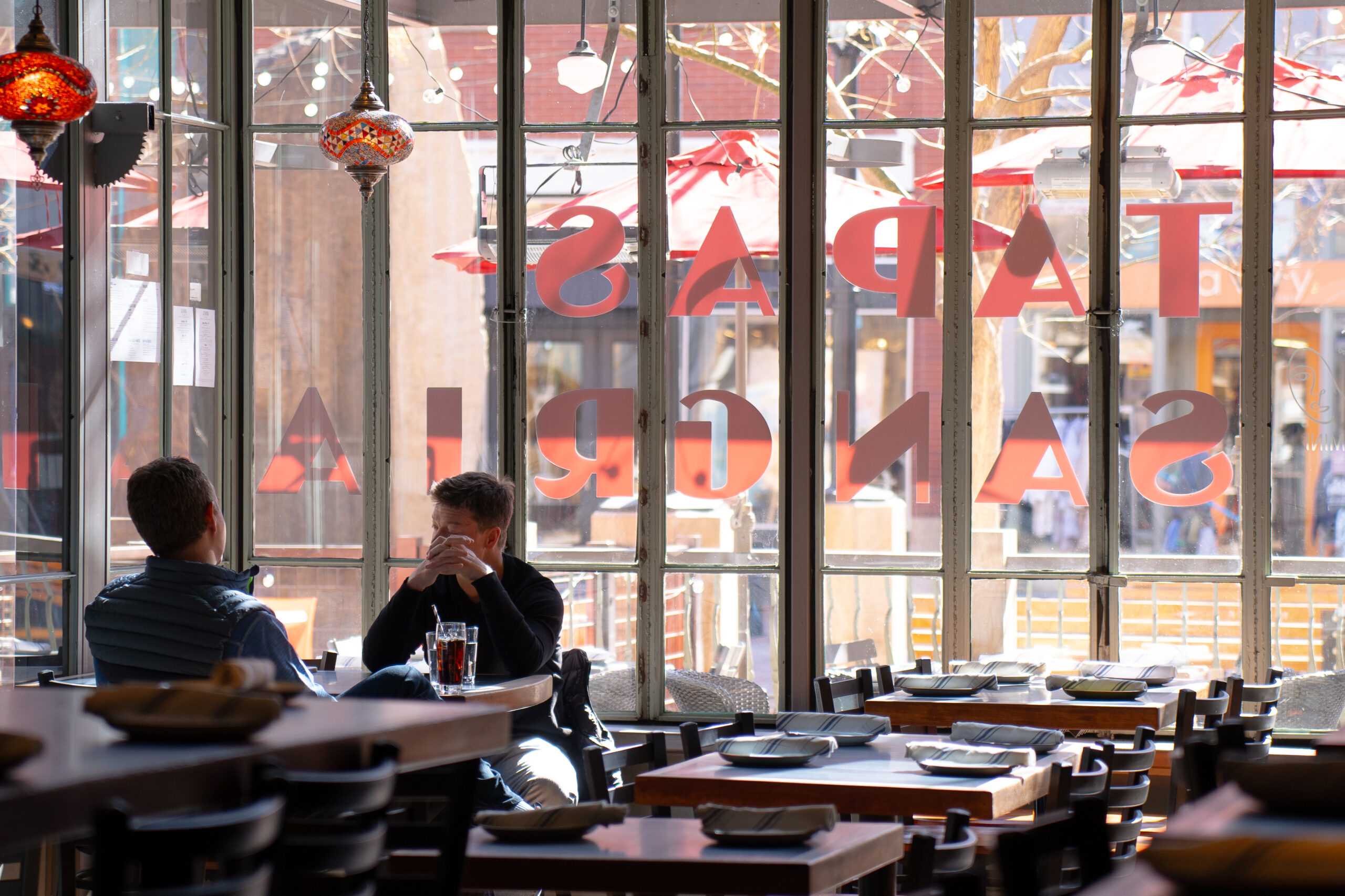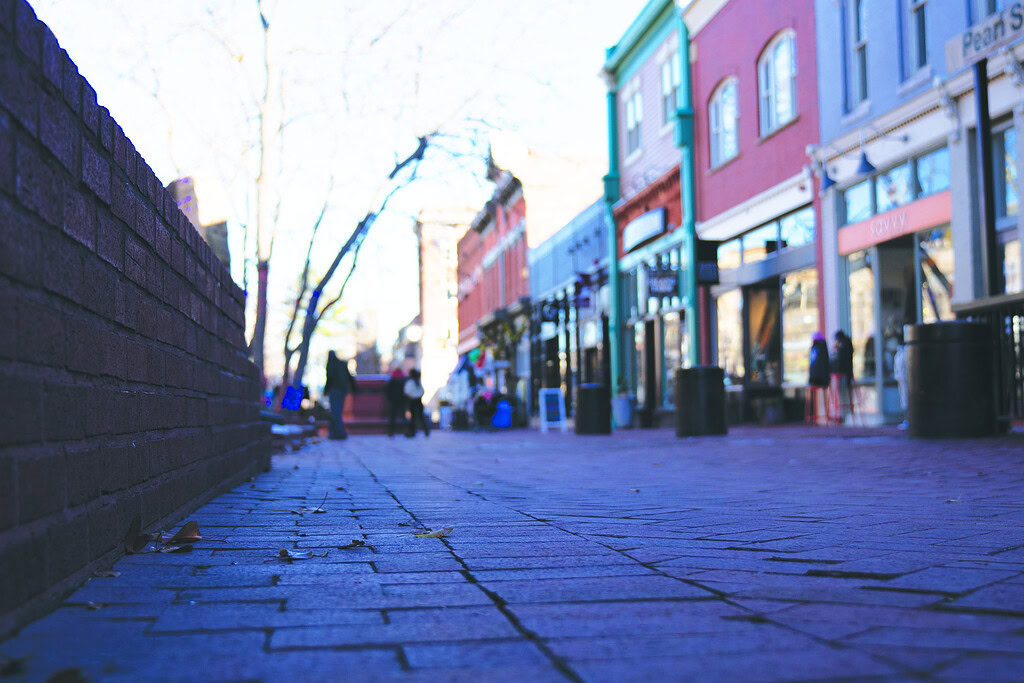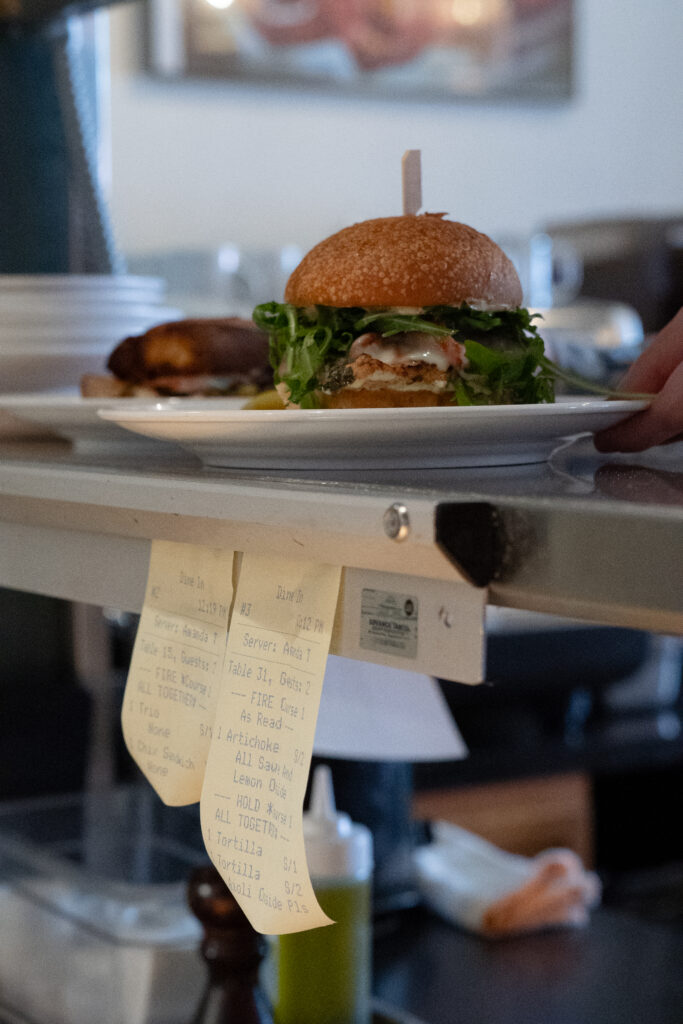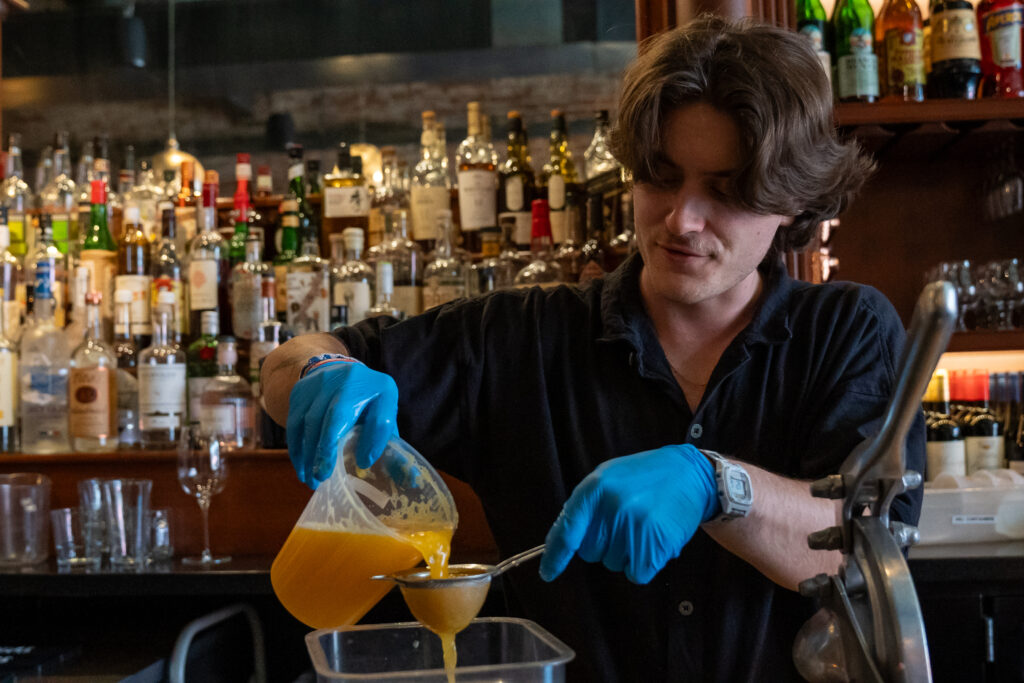
On paper, downtown Boulder is thriving. Visitor numbers rose by 5% in 2024, crime has returned to pre-pandemic levels, and retail vacancy sits at a low 4%, ensuring rents remain high. Millions of visitors are pouring in, spending tens of millions of dollars, and the district has seen steady growth for consecutive years post-COVID. But speak with the people running restaurants, and you’ll hear a different story — one of rising costs, staffing challenges and razor-thin margins that make survival harder than ever.

Read more
This is the second in a series of three articles on the topic of fewer people downtown, office vacancies and impacts on local businesses. Read Part 1, “Unoccupied and Uncertain."
The Friday afternoon scene at Mountain Sun last month would have been unthinkable in January 2020. “We had five tables. Normally, pre-pandemic, we would have been on a wait — it’s dead,” says owner Kevin Daly, describing the emptiness of his restaurant in the early days of 2025.
At Gemini, co-owner Michael Mehiel says their worst Friday dinner sales of the past three years was this past November, followed by their weakest Black Friday weekend performance on record. For T/aco owner Peter Waters, the numbers are sobering: Weekday lunch business is down 50% compared to 2019 levels, he says.
According to a recent study by the Downtown Boulder Partnership and Visitors Bureau, two-thirds of downtown restaurants surveyed reported their income has either stagnated or decreased compared to the previous year.
For restaurant owners, the disconnect between the numbers and their day-to-day reality is frustrating. While the data paints a picture of progress, many are grappling with declining sales, rising costs and a customer base that isn’t spending the way it once did.
‘Thriving’ or crime-ridden?
Restaurant owners are quick to name what they perceive as the biggest problems downtown: Workers aren’t coming into their Boulder offices, and everyone else is too scared of rampant crime and homelessness.
“The safety issue downtown is definitely keeping people away,” T/aco’s Waters said.
The first assertion is largely true: Roughly one-third of downtown offices are empty, quadruple the number of pre-pandemic vacancies.
But their observations on crime depressing visitation aren’t supported by the numbers.
“Data shows that while there are fluctuations in criminal activity,” said city spokesperson Shannon Aulabaugh, “overall safety on the Pearl Street Mall is improving,” with violent crime rates falling each of the past three years.
And according to data collected by the Downtown Boulder Partnership (DBP), downtown visitation increased 5.2% in 2024.
Even restaurant owners’ belief that Boulderites don’t come to Pearl Street is less true than in past years. City data shows visits from locals and tourists are on the rise: Residents made nearly 300,000 more trips downtown in 2024 than two years earlier.
“This is not a blighted area,” DBP’s Bettina Swigger said. “This is a thriving destination that people talk about nationally and internationally.”

Perception of safety
Restaurant owners say the data doesn’t tell the whole story — especially when it comes to crime.
“Reported crime is flat or down because people are like, ‘Great, someone just stole from my shop again. I’ve called 10 times already and nothing ever comes of it, why should I bother wasting my time calling the police right now?’” said T/aco’s Waters.
The city acknowledges that disconnect.
“When we look at safety and crime downtown, we consider not only what the stats show, but also the feedback we get from our community stakeholders,” said Dionne Waugh, a Boulder Police Department spokesperson. “We learned at one of our recent meetings with the Denver Boulder Partnership that there seem to be some businesses downtown who don’t call the police for perceived minor crimes, and we are currently trying to work with them to address those issues.”
Safety is also about perception, Swigger said. Studies show that vibrant, populated areas feel safer than desolate ones.
Although visitation has increased, it hasn’t yet reached pre-pandemic levels. In 2024, the total number of visitors to the Central Area General Improvement District — the downtown area, generally 9th to 18th west-to-east and Spruce to Arapahoe, north-south — was nearly 11% lower than in 2019, according to city data.
“There are just fewer people downtown,” Swigger said. “There are actual state safety statistics … about how when there are lots of people in an area, it feels safer because there’s more people watching out for you.”

Shifting spending habits
As with crime, total visitation is just one piece of the puzzle. Just because more people are coming downtown doesn’t mean they’re spending money — or spending as much of it as they once did.
In 2024, downtown made up 10% of Boulder’s sales tax revenue. That’s down compared to 2019 when the same area represented 12.5% of the city’s sales tax revenue. While a 2.5% point difference might not seem like much, it represents millions of dollars.
And not all visitors are created equal. A 2024 survey from DBP showed that “out-of-state visitors spend nearly double per visit downtown vs. Boulder County residents.” Locals make up only 25% of visitors to downtown Boulder.
“CU grad week, CU move-in, football games — those are the best weeks of the year,” said Gemini’s Mehiel. “And during the summer there are tourists, so we do pretty consistently good numbers in the summer months.
“What does that all add up to? You’ve got a downtown economy that is supported almost entirely by tourists and the university.”
Shifting consumer habits may also be to blame. As The Atlantic reported last month, "the share of U.S. adults having dinner or drinks with friends on any given night has declined by more than 30% in the past 20 years.”
According to the National Restaurant Association, 74% of restaurant traffic in 2023 came from “off-premises” customers (takeout and delivery), up from 61% before COVID. Patrons who eat on-site spend about 18-34% more than those who order out, according to a 2023 study from the American Journal of Agricultural Economics.
“If we didn’t have DoorDash right now, we would be in worse shape than we are,” Mehiel said. “Doesn’t mean I’m thankful for it.”

Rising costs
One thing is undeniable: It’s gotten more costly to run a restaurant.
“Our entire cost structure has gone up significantly, not to mention the fact that the percentage of margin is shrinking,” Waters said. “If anything, we should be growing significantly greater just to hold the same dollars that we had in 2019.”
According to Waters and Mehiel, the two biggest costs in a restaurant are goods and labor.
“Our biggest cost right now is going to be cost of goods, which is your alcohol and food ingredient costs,” said Waters. “We’ve seen massive increases — about 50% in our cost of goods sold over the last five or six years since COVID started.”
Boulder’s new minimum wage — $15.57 per hour, as of Jan. 1 — “is going to increase our cost by about $42,000 in 2025,” said Justin Hartman, co-owner of OZO Coffee, which has two locations on either end of the Pearl Street Mall.
“With our financials, there’s not a lot of profitability in the two stores on Pearl, so that will put us [in] the red $41,000 or more, depending on the store.”
Several owners suggested that, unless conditions change drastically, the new expense could be what breaks the downtown Boulder restaurant industry.
“It’s going to be very hard for restaurants to overcome the increase in [wage] expense without sales coming back online,” said Mehiel.
A unified front
Owners are considering unifying and bringing their concerns to the city so they can have a louder voice — which may include a run for Boulder’s city council.

“We need a unified front, which is all of us getting together and agreeing on what our concerns are,” Waters said. “We are looking for representation amongst business owners. We have not decided on a candidate.”
Boulder restaurant owners worked with their peers in Denver and legislators at the state capitol on HB-1208, a bill to recalculate minimum wage for tipped workers. Non-tipped employees are generally already earning above minimum wage, owners said, so they don’t benefit from the increases, whereas tipped employees do.
“All my servers are the most highly paid people in the building, and they all got a raise” on Jan. 1, Mehiel said. “All of our cooks and dish people are well above minimum wage, but they did not get a raise.”
The legislation was introduced Tuesday, Feb. 11 at the statehouse. Outside of government action, restaurant owners downtown are urging the community to rally for revival.
“The conversation begins now, and it needs to be expedient,” Mehiel said. “Pearl Street has a great offering, and we have to get the word out.”
Tyler Hickman contributed reporting.
